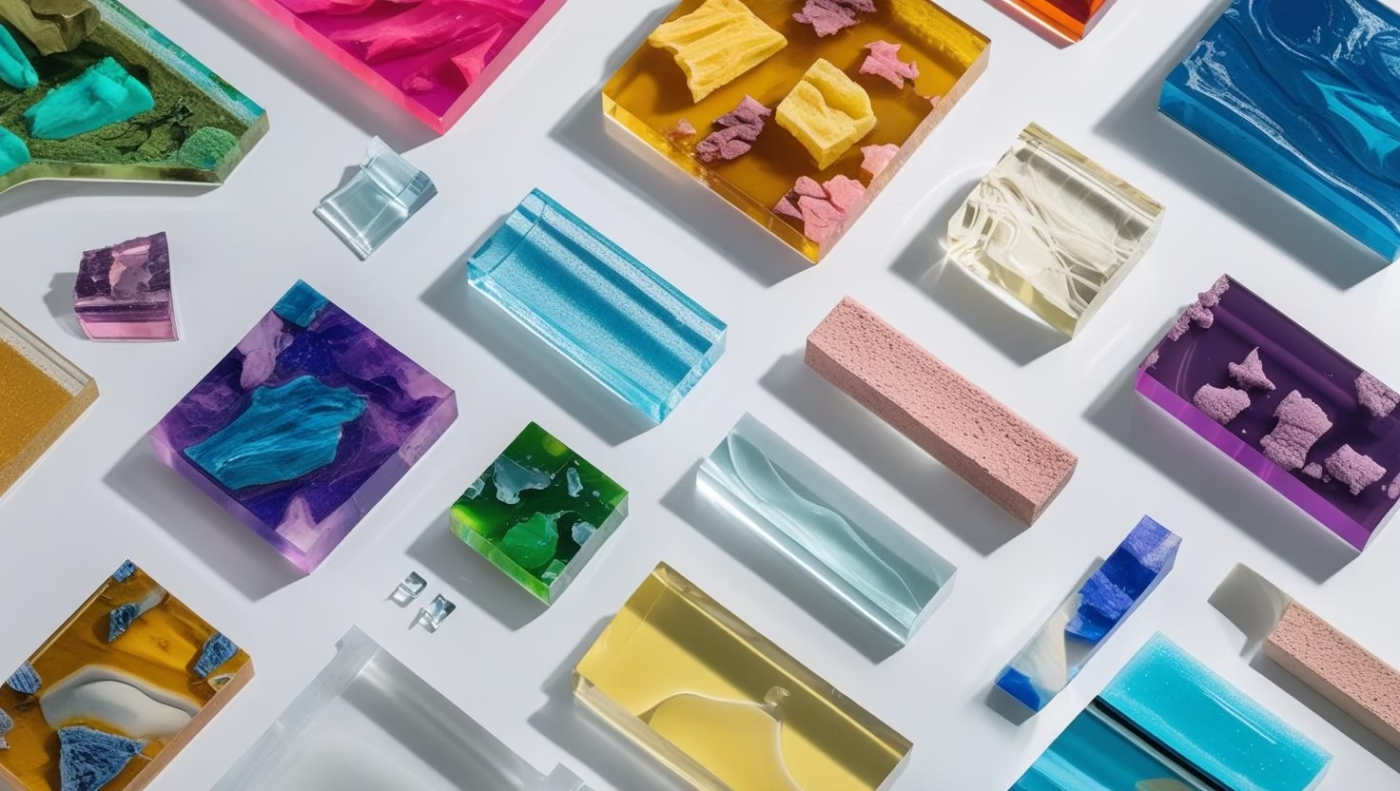Acrylic resins are one of the most versatile and widely used synthetic materials in industrial and commercial applications. From paints and coatings to adhesives and dental materials, acrylic resins play a crucial role in modern manufacturing.
In this guide, we’ll explore what acrylic resin is, what it’s made of, different types, uses across industries, and how it compares with other resins like epoxy or polyester.
What Is Acrylic Resin Made Of?
Acrylic resin is a group of thermoplastic or thermosetting polymers formed from acrylic acid, methacrylic acid, or their derivatives. These resins are synthesized through the polymerization of monomers like methyl methacrylate (MMA) and ethyl acrylate, resulting in strong, transparent, and weather-resistant materials.
🔬 Key Ingredients:
- Acrylic acid
- Methacrylic acid
- Esters and initiators
- Optional additives for UV stability or heat resistance
Acrylic resin can be solvent-based, water-based, or 100% solid, depending on the application. These are often modified with other resins (like epoxy or polyurethane) to enhance flexibility or durability.
Types of Acrylic Resin
There are several types of acrylic resin, each suited for different use cases:
✅ Thermoplastic Acrylic Resins
- Soften with heat
- Ideal for re-moldable applications
- Common in paints and adhesives
✅ Thermosetting Acrylic Resins
- Harden irreversibly with heat
- Used in structural and high-temperature applications
✅ UV-Cure Acrylic Resins
- Cured by ultraviolet light
- Popular in electronics and printing industries
✅ Water-Based Acrylic Resins
- Eco-friendly and low-VOC
- Used in decorative paints and coatings
✅ Self-Curing Acrylic Resins
- Cure at room temperature
- Used in dental and medical applications
Uses of Acrylic Resin
Acrylic resins are known for their durability, transparency, and chemical resistance. They are used across a variety of sectors:
| Industry | Applications |
|---|---|
| Paints & Coatings | Exterior and interior paints, automotive coatings, wood finishes |
| Construction | Adhesives, waterproofing membranes, sealants |
| Electronics | Conformal coatings, encapsulants |
| Medical | Dental prosthetics, bone cements |
| Packaging | Flexible films, rigid containers |
| Textiles & Leather | Finishes, laminations |
Other uses include acrylic resin for wood, acrylic resin spray paint, and pouring acrylic resin for artistic applications.
Acrylic Resin vs Other Resins
Understanding how acrylic resin compares with alternatives helps in selecting the right material.
🔄 Acrylic Resin vs Epoxy Resin
| Property | Acrylic | Epoxy |
|---|---|---|
| Curing | Fast | Slow |
| Flexibility | Higher | Lower |
| Weather Resistance | Excellent | Good |
| Adhesion | Moderate | Excellent |
| Cost | Lower | Higher |
🧪 Acrylic vs Polyester Resins
- Acrylic is more UV- and weather-resistant.
- Polyester is cheaper but prone to yellowing and cracking over time.
❓ Common Questions:
- Is acrylic a resin? → Yes, acrylic is a type of synthetic resin.
- Is resin the same as acrylic? → Not exactly. Resin is a broader category; acrylic is one type of resin.
Acrylic Resin Market & Pricing
The global acrylic resin market is growing steadily, driven by demand in the construction, automotive, and packaging industries. Water-based acrylic resins, in particular, are gaining popularity due to environmental regulations.
💰 Acrylic Resin Price
Prices vary depending on:
- Type (thermoplastic vs thermoset)
- Additives and modifiers
- Packaging size and quantity
- Country of origin
FAQs – Answering What Users Search Most
🔹 What is acrylic resin used for?
It’s used in coatings, adhesives, plastics, dental materials, and more.
🔹 Is acrylic resin plastic?
Yes, many forms of acrylic resin are considered thermoplastic materials.
🔹 How to make acrylic resin?
Industrially, it’s made via polymerization of acrylic or methacrylic monomers in the presence of initiators.
🔹 Can resin stick to acrylic?
Yes, but surface preparation is needed for strong adhesion.
🔹 What are the benefits of acrylic resin?
- Excellent weather resistance
- UV and chemical stability
- Fast drying and curing
- Clarity and gloss retention
Conclusion
Acrylic resins are truly versatile materials with a wide spectrum of applications — from paints and coatings to medical devices and electronics. Whether you’re comparing acrylic vs resin, choosing the right type of acrylic resin, or exploring its uses and market trends, understanding the fundamentals can help you make the best choice for your needs.
For industrial-grade acrylic resins, customized solutions, or technical advice, feel free to connect with Crest Resins — your trusted resin solutions partner.
COMPANY INFO
Website: www.crestresins.com
Phone: +91 9879233188
Email: enquiry@crestresins.com
Address: 605/A, 6th Floor, Tower D, Times Square Grand Office, Sindhubhavan Marg, Near Taj Hotel, Ahmedabad, Gujarat - 380059

